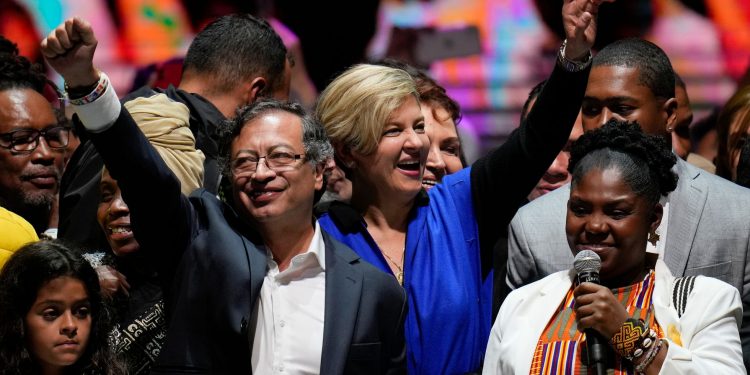By Miguel Angel Hernandez, a leader of the PSL of Venezuela and the IWU-FI
20 June 2022.
The victory of Gustavo Petro in the presidential election re-run in Colombia was consummated. With 50.44 per cent (11,115,965 votes), against 47.33 per cent (10,381,504) for the right-wing business manager Rodolfo Hernandez. Some pollsters claimed that the “Trumpist” Rodolfo Hernandez could win. This electoral triumph has affected Latin America and the world.
The triumph of Petro and the Historical Pact alliance is unprecedented and of great political significance, where someone who claims to be a leftist and who was a guerrilla fighter in the past has reached the presidency. In a country that has historically been governed by the conservative and liberal pro-imperialist right, and for the last 20 years by Uribism. Another important and unthinkable aspect in a country like Colombia is that, for the first time, an African-American woman, Francia Marquez, is the new vice-president.
As we said in a previous article, the triumph of Gustavo Petro reflects the Colombian people’s rebellion against Iván Duque, which swept the country last year in April. It also expresses the Colombian people’s desire for change in their living conditions and the willingness to defeat Uribism, which the Colombian people see as a repressive regime of false positives, and paramilitary violence, and handed over to US imperialism.
What is remarkable is that with the massive vote for Gustavo Petro, the working class, the youth, the women, the indigenous people, and all those who mobilised last year in Colombia, are looking for a left-wing way out of their grave social situation.
In Colombia, a period of great expectations is opening up with the new government. There is hope that the serious social problems in one of the most unequal countries in Latin America, with 70 per cent poverty and 12.2 per cent of Colombians living in extreme poverty, can be resolved. The Colombian people see Petro’s triumph as positive, as happened in Peru with Pedro Castillo or with Gabriel Boric in Chile.
However, in his first speech as president-elect, Petro was very clear: “we are going to develop capitalism”. And he sweetened it by talking about a supposedly democratic, productive and non-speculative capitalism. He ratified what he had already said during the campaign, that he would protect private ownership of the means of production. He also proposed dialogue with Biden’s imperialist government.
That Petro will keep the economy in the hands of the landowners, the big capitalist and financial groups, and the big transnationals, reproducing exploitation in Colombia.
In this way, there will be no solution for the Colombian people, workers, labourers, peasants and youth. Therefore, beyond the expectations that exist in Petro’s government, we say that the Colombian people must prepare to continue fighting, as they did last year. To continue fighting for the main workers’ and popular demands.
We understand the hopes around Petro’s new government, but we must be very clear with the Colombian working people: unfortunately, Petro’s government will be a new government of class conciliation, like Boric in Chile, Castillo in Peru or an eventual government of Lula in Brazil. Governments of double discourse, while referring to the “popular”, make pacts with the bourgeoisie and the transnationals, and continue to apply economic austerity plans to the people.
We understand the expectations and hopes of the young people, the indigenous people, and the workers who came out to protest in April last year. To all of them, we say that we must continue to mobilise and not wait for the government to solve our problems.
We must prepare for the mobilisation of the working people putting forward their demands that inspired last year’s rebellion, agrarian reform, a break with the transnationals and the IMF, wages, education and health, the release of the detainees of the rebellion, for the elimination of the Esmad, the shadowy riot squad of the national police, and the end of paramilitary violence.
As revolutionary socialists, we believe in the struggle for a real structural and fundamental change in Colombia, which is none other than a Workers’ Government. From that perspective, we say that the Colombian people must continue to mobilise without placing trust in Petro’s government.













